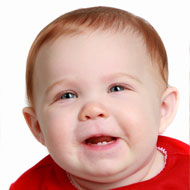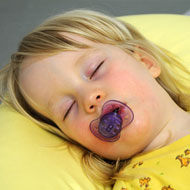- Toddler Measles Symptoms
- Toddler Flu Treatment
- Toddler Flu Symptoms
- Toddler Stomach Flu Symptoms
- Toddler Hair Loss
- Toddler Urinary Tract Infection Symptoms
- Toddler Tonsillectomy Recovery
- Toddler Periorbital Cellulitis
- Toddler Vomiting and Diarrhea
- Types of Toddler Vomiting
- Toddler Vomiting Treatment
- Toddler Cough Vomit
- Toddler Dandruff
- Toddler Bowlegs
- Toddler Eye Infection
- Toddler Pink Eye
- Toddler Pink Eye Symptoms
- Toddler Eye Problems
- Toddler Hearing Loss Signs
- Symptoms Of Pinworms In Toddlers
- Toddler Blood Infection
- Toddler Mononucleosis
- Toddler Motion Sickness
- Toddler Labial Adhesion
- Lyumphoma in Toddlers
- Toddler Scabies
- Toddler Pinworms
- Toddler Insect Bites
- Toddler Meningitis
- Toddler Moles
- Toddler Lyme Disease
- Toddler Nosebleeds
- Toddler Ingrown Toenail
- Toddler Lead Poisoning
- Toddler Hair Loss Alopecia Areata
- Toddler Heat Stroke
- Toddler Rubella
- Toddler Tonsillectomy
- Toddler Iron-Deficiency Anemia
- Toddler Tooth Discoloration
- Toddler Concussion
- Toddler Psoriasis
- Toddler Sunburn
- Toddler Tongue Blisters
- Toddler Impetigo
- Toddler Blepharitis
- Toddler Burns
- Toddler Burn Treatment
- Toddler Eczema Face
- Toddler Eczema Symptoms
- Toddler Urinary Tract Infection
- Toddler Boy Urinary Tract Infection
- Toddler Epilepsy
- Toddler Walking Pneumonia
- Toddler Yeast Infection Symptoms
- Toddler Frostbite
- Toddler Hand Foot And Mouth Disease
- Toddler Dry Scalp
- Toddler Dry Skin
- Toddler Strep Throat
- Toddler Strep Throat Symptoms
- Toddler Sore Throat
- Toddler Mumps
- Toddler Bacterial Infection
- Shaken Baby Syndrome
- Shaken Baby Syndrome Symptoms
- Toddler Tonsillitis
- Toddler Eye Discharge
- Toddler Fifth Disease
- Toddler Febrile Seizures
- Toddler Food Poisoning
- Toddler Gingivostomatitis
- Toddler Stomach Ache
- Toddler Warts
- Toddler Tuberculosis
- Toddler Torticollis
- Toddler Tick Bites
- Toddler Ear Infection Remedies
- Toddler Ear Infection Symptoms
- Toddler Ear Infection Signs
- Toddler Concussion Signs
- Toddler Bronchitis
- Toddler Colds
- Toddler Chicken Pox
- Toddler Appendicitis
- Toddler Asthma
- Toddler Birthmarks
- Toddler Strabismus
- Toddler Wheezing
- Toddler Sprains
- Toddlers Tinea Versicolor
- Toddler Viral Infection
- Toddler Yeast Infection
- Toddler Hives
- Toddler Canker Sores
Toddler Epilepsy Symptoms: Signs of Epilepsy, Conditions and Prevention
Epilepsy is a neurological disorder in which the patient suffers temporarily from a heavy electrical impulse that is generated in the brain and runs down through the central nervous system, causing a temporary disturbance in the normal functioning of vital body organs. The patient may suddenly become partially or totally unconscious, and his/her body may start jerking sharply and involuntarily.
To an observer, it looks as though the patient is under some sort of trance. Exhaustion and stress are often responsible for triggering epileptic attacks.
Toddler Epilepsy Conditions
A large portion of such cases occur before the age of 5 or after the age of 65. Toddlers may experience this condition if their body temperature rises too high, either because of fever or due to extreme heat outside. Thus, if the toddler has been suffering from a major infection and has been wrapped in warm clothes for a long period of time, she becomes vulnerable to epileptic attacks. Other causes behind epilepsy include lead poisoning, head injuries and brain tumors. In a few cases, epilepsy occurs because of improper development of the brain in the fetal stage during pregnancy. The signs of epilepsy in toddlers are the involuntary twitching of the muscles of the mouth, lack of response to outside activities, and a stiffening of the body. The child may also lose his/her balance and fall on the floor in a state of unconsciousness.
Other symptoms of epilepsy in toddlers are unusual sensations of sounds, tastes and smells that the patient reports after s/he recovers from the seizure.
Preventing Epilepsy in Toddlers
There are a few basic precautionary measures that you should take to take care of toddlers who face this problem. Make sure that the body temperature of your child does not shoot up to dangerously high levels, as this can affect her brain adversely and render her susceptible to fits and seizures. Also, it is advisable not to try stopping the involuntary body spasms that the child experiences during an epileptic fit. Place the child on a soft bed to ensure that she does not hit herself hard by falling on a hard surface during the fit. Make the surroundings of the toddler cool and comfortable by loosening her bedclothes and opening the windows of her room to allow fresh air in. It also helps to soak a soft towel in a tub of lukewarm water and place it gently over the child's forehead and her inner arms. Once the seizure is over, put the child to sleep and call a doctor for advice


